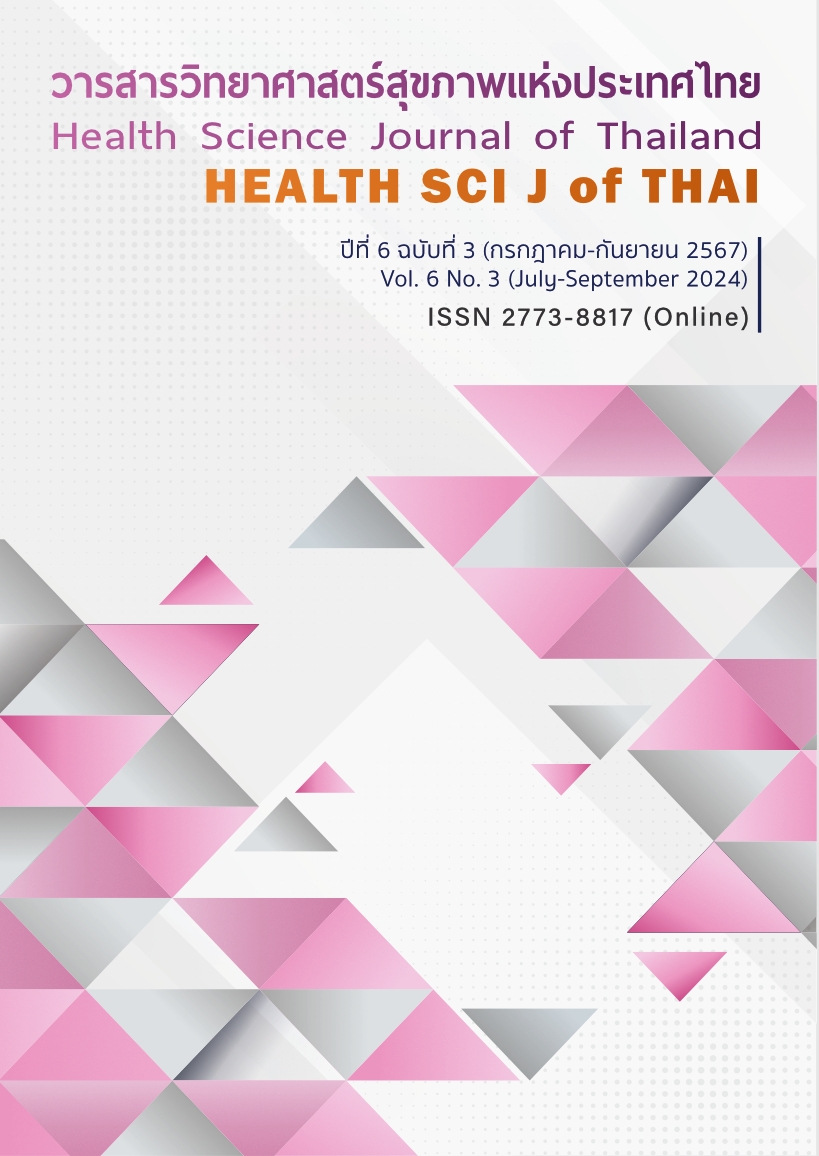Rapid Health Impact Assessment: A Tool for Developing the Healthy Public Policy
Main Article Content
Abstract
Rapid changes in social and environmental situations, epidemics, and war have had an impact on public policy, a governmental output that may have both positive and negative impacts on public health. Rapid health impact assessment (Rapid HIA) emerges as a versatile type of health impact assessment and a valuable tool for developing healthy public policies. This article presents the characteristics of developing such policies with rapid health impact assessment, in line with the principles of health promotion, public policy model, and rapid health impact assessment principles. The Rapid HIA implementations, detailed in accordance with the steps of HIA, showcase their adaptability to impact characteristics despite limited time and resources. As a result, these operations are applied by modifying or combining some HIA steps and utilizing rapid evaluation methods. The rapid HIA findings are instrumental in the development of public policy proposals that are not only timely but also well-suited for policymakers in their decision-making processes.
Article Details

This work is licensed under a Creative Commons Attribution-NonCommercial-NoDerivatives 4.0 International License.
References
National Health Commission office. Statute on National Health System (2009). Nonthaburi: National Health Commission office; 2009.
Puansongkram S. Good Public Policy Framework for Thai Political Parties in Preparation of National Administration Policies. Rattasapasarn. 2017; 65(11): 9–44. (In Thai)
Wamanond W. Public Policy Process in Thailand: Problems and Solutions. Kasem Bundit J. 2018; 19(Special Edition): 197–207. (In Thai)
Green L, Ashton K, Bellis MA, Clemens T, Douglas M. ‘Health in All Policies’—A Key Driver for Health and Well-Being in a Post-COVID-19 Pandemic World. Int J Environ Res Public Health. 2021; 18(18) : 1-16.
Delany T, Lawless A, Baum F, Popay J, Jones L, McDermott D, et al. Health in All Policies in South Australia: what has supported early implementation? Health Promot Int. 2016; 31(4): 888-98.
Benjatanawat S, Sutheravut P, Hongchayangkool K, Kaewthong Y. Lessons Learned on Area - Based Promoting Physical Activity for Healthy Public Policy. J MCU Nakhondhat. 2023; 10(2): 213–31. (In Thai)
Harris P, Sainsbury P, Kemp L. The fit between health impact assessment and public policy: Practice meets theory. Soc Sci Med. 2014; 108: 46–53.
Thomas I. Environmental Policy: Australian Practice in the Context of Theory. Federation Press; 2007.
Thondoo M, Rojas-Rueda D, Gupta J, de Vries DH, Nieuwenhuijsen MJ. Systematic Literature Review of Health Impact Assessments in Low and Middle-Income Countries. Int J Environ Res Public Health. 2019; 16(11): 1-21.
Bourcier E, Charbonneau D, Cahill C, Dannenberg AL. An Evaluation of Health Impact Assessments in the United States, 2011–2014. Prev Chronic Dis. 2015; 19(12) :1-10.
Harris-Roxas B, Viliani F, Bond A, Cave B, Divall M, Furu P, et al. Health impact assessment: the state of the art. Impact Assess Proj Apprais. 2012; 30(1): 43–52.
Walt G, Gilson L. Reforming the health sector in developing countries: the central role of policy analysis. Health Policy Plan. 1994; 9(4):353–70.
Chuenklin C, Rungnoei N, Kaeowichian N, Suthamchai B, Girdwichai W, Pannarunothai S. The Evaluation of Intermediate Care for the Elderly in Thailand according to the Ministry of Public Health's Policy. Health Systems Research Institute; 2020. (In Thai)
Benjatanawat S, Isaramalai SA, Muenhor D. The Development of a Rapid Health Impact Assessment Model for Songkhla Special Economic Zone (SEZ) Policy in Southern Thailand. Iran J Public Health. 2021; 50(1): 130–38.
Baskin-Graves L, Mullen H, Aber A, Sinisterra J, Ayub K, Amaya-Fuentes R, et al. Rapid Health Impact Assessment of a Proposed Poultry Processing Plant in Millsboro, Delaware. Int J Environ Res Public Health. 2019; 16(18): 1-18.
Getsuwan R. Public Policy (Second edition). Bangkok: Borpit Printing; 2014. (In Thai)
Jatupatrangsee W, Butrudom T, Sattakorn W. Limitations of the Use of Models in Public Policy Analysis: Proposal for Using Postmodern Theory in Policy Analysis. Fac Humanit Soc Sci Nakhon Sawan Rajabhat Univ Acad J. 2022; 9(1): 166–78. (In Thai)
Dye TR. Understanding public policy (Seventh edition). Englewood Cliffs, N.J: Prentice Hall; 1992.
National Health Commission office. Thailand’s rules and procedures for the health impact assessment of public policies (version 2016). Nonthaburi: National Health Commission Office; 2016. (In Thai)
European Centre for Health Policy (ECHP). Health Impact Assessment: Main concepts and suggested approach. WHO Regional Office for Europe; 1999.
National Health Commission Office. Thailand’s rules and procedures for the health impact assessment of public policies (version 2021). Nonthaburi: National Health Commission Office; 2021. (In Thai)
Commission on Social Determinants of Health. Closing the gap in a generation: Health equity through action on the social determinants of health. World Health Organization; 2008.
Pengkam S. Revitalizing Thailand: Community Health Impact Assessment. Health Impact Assessment Coordinating Unit, National Health Commission Office; 2012.
Dunn WN. Public Policy Analysis: An Integrated Approach (Sixth edition). New York: Routledge; 2017.
Bhatia R, Farhang L, Heller J, Lee M, Orenstein M, Richardson M, et al. A. Minimum Elements and Practice Standards for Health Impact Assessment. Version 3. North American HIA Practice Standards Working Group; 2014.
Costa A, Cortes M, Sena C, Nunes E, Nogueira P, Shivaji T. Equity-focused health impact assessment of Portuguese tobacco control legislation. Health Promot Int. 2016; 33(2): 279-87.
Gulis G, Safi M, Linde DS. Rapid health impact assessment of a Danish policy document: One Denmark without Parallel Societies: No Ghettos in 2030. J Public Health. 2022; 30(4): 983–89.


